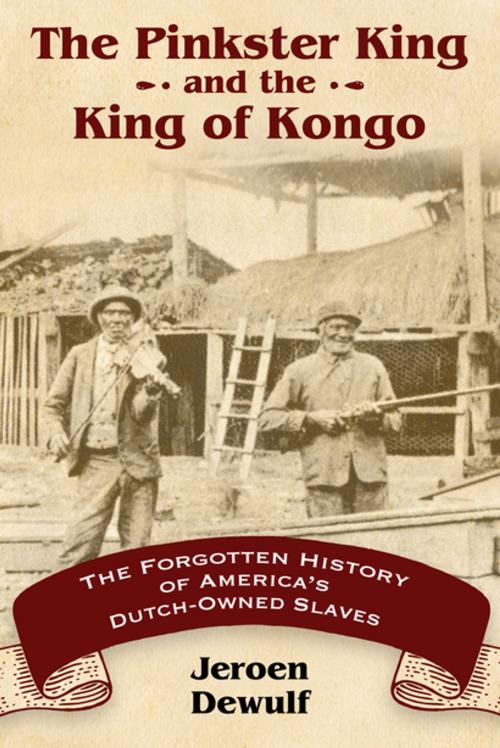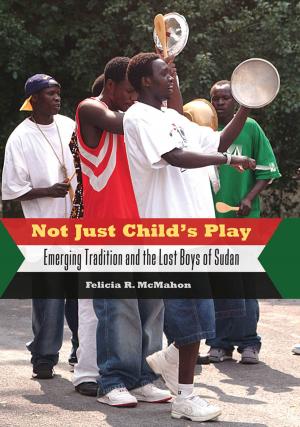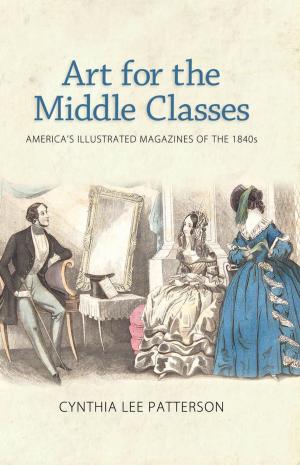The Pinkster King and the King of Kongo
The Forgotten History of America's Dutch-Owned Slaves
Nonfiction, Social & Cultural Studies, Social Science, Folklore & Mythology, Discrimination & Race Relations, Cultural Studies, African-American Studies| Author: | Jeroen Dewulf | ISBN: | 9781496808820 |
| Publisher: | University Press of Mississippi | Publication: | December 20, 2016 |
| Imprint: | University Press of Mississippi | Language: | English |
| Author: | Jeroen Dewulf |
| ISBN: | 9781496808820 |
| Publisher: | University Press of Mississippi |
| Publication: | December 20, 2016 |
| Imprint: | University Press of Mississippi |
| Language: | English |
The Pinkster King and the King of Kongo presents the history of the nation's forgotten Dutch slave community and free Dutch-speaking African Americans from seventeenth-century New Amsterdam to nineteenth-century New York and New Jersey. It also develops a provocative new interpretation of one of America's most intriguing black folkloric traditions, Pinkster. Jeroen Dewulf rejects the usual interpretation of this celebration of a "slave king" as a form of carnival. Instead, he shows that it is a ritual rooted in mutual-aid and slave brotherhood traditions. By placing these traditions in an Atlantic context, Dewulf identifies striking parallels to royal election rituals in slave communities elsewhere in the Americas, and he traces these rituals to the ancient Kingdom of Kongo and the impact of Portuguese culture in West-Central Africa.
Dewulf's focus on the social capital of slaves follows the mutual aid to seventeenth-century Manhattan. He suggests a much stronger impact of Manhattan's first slave community on the development of African American identity in New York and New Jersey than hitherto assumed.
While the earliest works on slave culture in a North American context concentrated on an assumed process of assimilation according to European standards, later studies pointed out the need to look for indigenous African continuities. The Pinkster King and the King of Kongo suggests the necessity for an increased focus on the substantial contact that many Africans had with European--primarily Portuguese--cultures before they were shipped as slaves to the Americas. The book has already garnered honors as the winner of the Richard O. Collins Award in African Studies, the New Netherland Institute Hendricks Award, and the Clague and Carol Van Slyke Prize.
The Pinkster King and the King of Kongo presents the history of the nation's forgotten Dutch slave community and free Dutch-speaking African Americans from seventeenth-century New Amsterdam to nineteenth-century New York and New Jersey. It also develops a provocative new interpretation of one of America's most intriguing black folkloric traditions, Pinkster. Jeroen Dewulf rejects the usual interpretation of this celebration of a "slave king" as a form of carnival. Instead, he shows that it is a ritual rooted in mutual-aid and slave brotherhood traditions. By placing these traditions in an Atlantic context, Dewulf identifies striking parallels to royal election rituals in slave communities elsewhere in the Americas, and he traces these rituals to the ancient Kingdom of Kongo and the impact of Portuguese culture in West-Central Africa.
Dewulf's focus on the social capital of slaves follows the mutual aid to seventeenth-century Manhattan. He suggests a much stronger impact of Manhattan's first slave community on the development of African American identity in New York and New Jersey than hitherto assumed.
While the earliest works on slave culture in a North American context concentrated on an assumed process of assimilation according to European standards, later studies pointed out the need to look for indigenous African continuities. The Pinkster King and the King of Kongo suggests the necessity for an increased focus on the substantial contact that many Africans had with European--primarily Portuguese--cultures before they were shipped as slaves to the Americas. The book has already garnered honors as the winner of the Richard O. Collins Award in African Studies, the New Netherland Institute Hendricks Award, and the Clague and Carol Van Slyke Prize.















